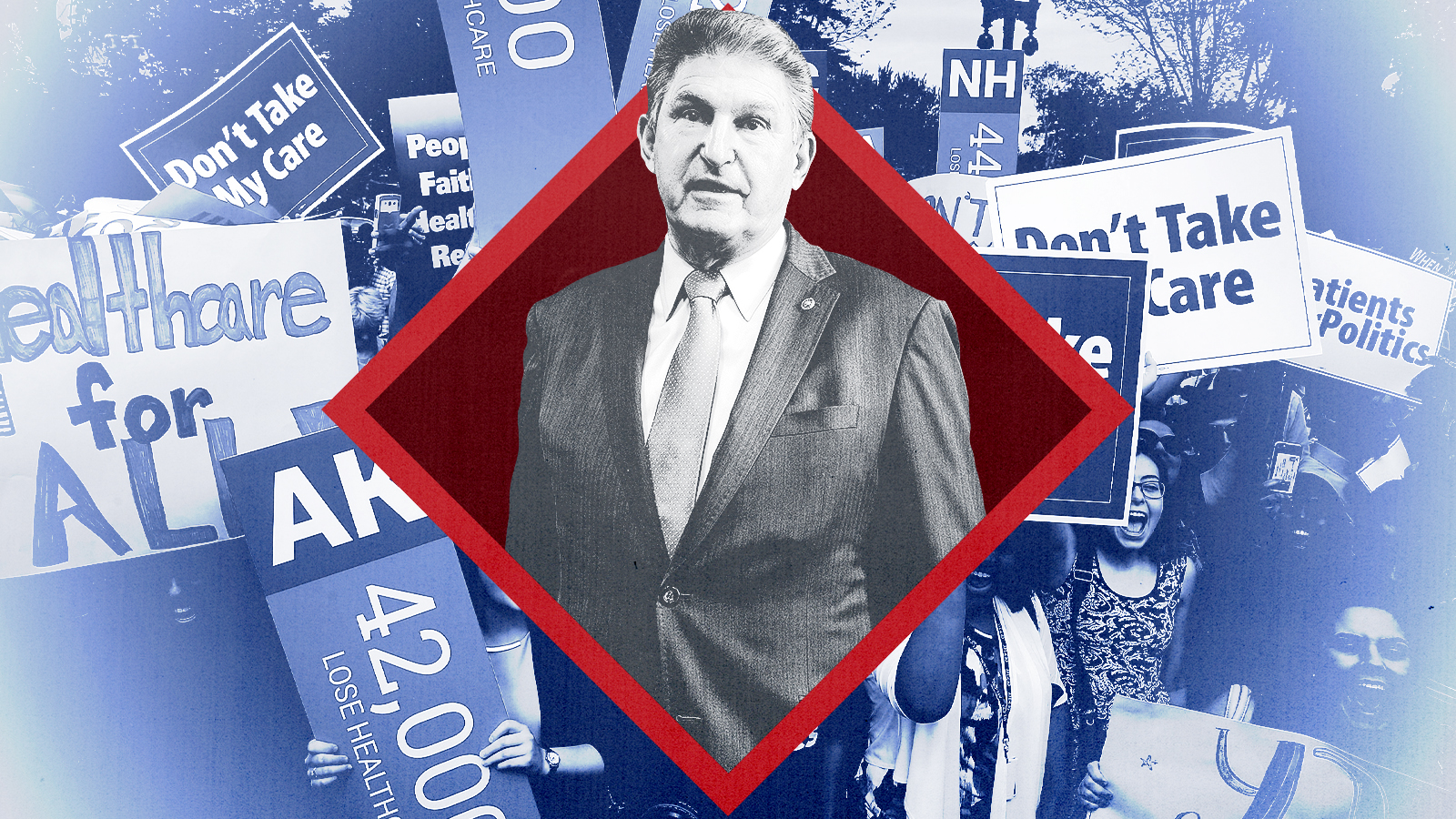ObamaCare set up today's filibuster fight


A free daily email with the biggest news stories of the day – and the best features from TheWeek.com
You are now subscribed
Your newsletter sign-up was successful
Democrats are beginning to lose their patience with the filibuster and the handful of recalcitrant members of their own party who refuse to support its abolition. Their election reform bill, a new round of social welfare spending, climate change legislation, perhaps even infrastructure are all stuck due to the Senate's 60-vote threshold for
ending debate.
Having run on an ambitious progressive platform, Democrats only have control of the Senate thanks to Vice President Kamala Harris' tie-breaking vote. Their House majority isn't much larger, but is less of a problem: Sans filibuster, all Democrats have to do is keep their caucus together to pass whatever they want.
The Week
Escape your echo chamber. Get the facts behind the news, plus analysis from multiple perspectives.

Sign up for The Week's Free Newsletters
From our morning news briefing to a weekly Good News Newsletter, get the best of The Week delivered directly to your inbox.
From our morning news briefing to a weekly Good News Newsletter, get the best of The Week delivered directly to your inbox.
Democrats, with a few notable exceptions, would now like to take this process to the "world's greatest deliberative body." But it is their experience with the last time they had a filibuster-proof majority, however briefly, that showed them that lasting liberal legislation could be passed by slim margins on a party-line vote.
ObamaCare initially made it through the Senate when Democrats had 60 votes due to moderate Republican Sen. Arlen Specter switching parties. The party's House majority was roughly as large, but the bill only narrowly passed the lower chamber when nearly 40 Democrats defected to vote against it. Eventually, Democrats had to resort to the
reconciliation process to muscle the legislation over the finish line because liberal icon Ted Kennedy died and was replaced by Republican Scott Brown, putting the filibuster back on the table.
But every major progressive achievement, from the New Deal to the Great Society to ObamaCare, was enacted when Democrats had much bigger congressional majorities than they do today. Social Security, Medicare, and the major civil rights legislation of the 1960s all passed on a bipartisan basis. The thought even among many liberals was that this was necessary to create buy-in for enduring change.
A free daily email with the biggest news stories of the day – and the best features from TheWeek.com
ObamaCare's passage was not bipartisan. In the House, the final margins were close. It cost Democrats their majorities later that year. Yet when the stars aligned for Republicans under Donald Trump in 2017, they could not repeal ObamaCare anymore than the mainstays of the New Deal.
The fact that Republicans ran on repeal for seven years, came close to doing so, and win elections often enough probably suggests the older model works better. Nevertheless, ObamaCare remains the greatest success story of liberals ready to ditch bipartisanship.
W. James Antle III is the politics editor of the Washington Examiner, the former editor of The American Conservative, and author of Devouring Freedom: Can Big Government Ever Be Stopped?.
-
 One great cookbook: Joshua McFadden’s ‘Six Seasons of Pasta’
One great cookbook: Joshua McFadden’s ‘Six Seasons of Pasta’the week recommends The pasta you know and love. But ever so much better.
-
 Scientists are worried about amoebas
Scientists are worried about amoebasUnder the radar Small and very mighty
-
 Buddhist monks’ US walk for peace
Buddhist monks’ US walk for peaceUnder the Radar Crowds have turned out on the roads from California to Washington and ‘millions are finding hope in their journey’
-
 How are Democrats trying to reform ICE?
How are Democrats trying to reform ICE?Today’s Big Question Democratic leadership has put forth several demands for the agency
-
 Democrats push for ICE accountability
Democrats push for ICE accountabilityFeature U.S. citizens shot and violently detained by immigration agents testify at Capitol Hill hearing
-
 Big-time money squabbles: the conflict over California’s proposed billionaire tax
Big-time money squabbles: the conflict over California’s proposed billionaire taxTalking Points Californians worth more than $1.1 billion would pay a one-time 5% tax
-
 Democrats win House race, flip Texas Senate seat
Democrats win House race, flip Texas Senate seatSpeed Read Christian Menefee won the special election for an open House seat in the Houston area
-
 Did Alex Pretti’s killing open a GOP rift on guns?
Did Alex Pretti’s killing open a GOP rift on guns?Talking Points Second Amendment groups push back on the White House narrative
-
 Is Alex Pretti shooting a turning point for Trump?
Is Alex Pretti shooting a turning point for Trump?Today’s Big Question Death of nurse at the hands of Ice officers could be ‘crucial’ moment for America
-
 ‘Dark woke’: what it means and how it might help Democrats
‘Dark woke’: what it means and how it might help DemocratsThe Explainer Some Democrats are embracing crasser rhetoric, respectability be damned
-
 Washington grapples with ICE’s growing footprint — and future
Washington grapples with ICE’s growing footprint — and futureTALKING POINTS The deadly provocations of federal officers in Minnesota have put ICE back in the national spotlight
